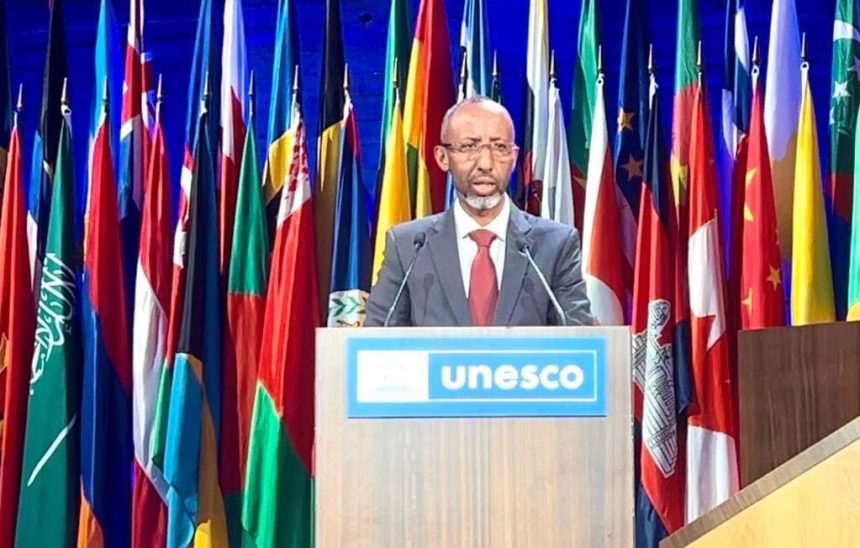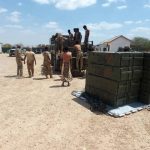Paris(SONNA)-In an impassioned address at the 42nd session of the UNESCO General Conference in Paris, the Minister of Education of Somalia, His Excellency Farah Sheikh Abdulkadir, delivered a compelling narrative on the pivotal role of UNESCO in bolstering the educational framework of underdeveloped nations.
Minister Farah, representing Somalia—a country that has faced decades of challenges ranging from civil unrest to educational deprivation—underscored the critical need for UNESCO’s enhanced involvement in the educational sectors of countries struggling with similar adversities. His speech not only outlined the stark realities faced by nations lagging in educational development but also the boundless opportunities that effective educational policies and UNESCO’s support can unlock.
The Minister elucidated the direct correlation between education and development, emphasizing that education is the cornerstone of economic, social, and political stability. He urged UNESCO to intensify its efforts in underdeveloped countries, highlighting the successful initiatives already underway in Somalia that have benefitted from the organization’s aid.
Addressing the assembly at UNESCO’s 42nd General Conference in Paris, the Minister of Education of Somalia, His Excellency Farah Sheikh Abdulkadir, articulated a vision where UNESCO’s mandate for education extends into the realms of peace and global security. In a speech that broadened the narrative around the contributions of the organization, the Minister laid out the profound implications of education on societal stability and peacekeeping.
His Excellency expounded on UNESCO’s pivotal role in fostering peace through educational empowerment. He cited the remarkable progress in Somalia, where the government’s concerted efforts, with UNESCO’s support, have significantly disrupted the stronghold of Al-Shabaab militants, leading to the liberation of over 80 villages and towns. This advancement has not only been a military success but a beacon of hope for educational opportunities, as these regions can now participate in national and global discourse on education.
The Minister proudly reported on the Somali government’s initiative to train thousands of teachers, a monumental step towards educational reform and capacity building. This initiative aligns with UNESCO’s objective to improve the quality of education by enhancing the professional development of educators, ensuring they can provide the best learning experience to students.
In a move that reflects the most aspirational goals of UNESCO, Minister Farah announced that the Somali government is now providing free education for all, a milestone that signifies a profound commitment to the idea that education is a fundamental human right. This policy is designed not just to boost literacy rates but to lay down the foundations for a more resilient and enlightened society, which is instrumental in the long-term vision of peace and security in the region.
By integrating these developments into his address, His Excellency Farah Sheikh Abdulkadir not only highlighted UNESCO’s influence on the ground but also called for sustained and increased efforts to use education as a tool for peace-building and conflict resolution. The message was clear: investing in education translates to investing in the stability and security of nations.
In conclusion, the speech of the Somali Education Minister was a robust appeal for UNESCO and its member states to continue to prioritize education as a strategic element in the pursuit of global peace and security. It also served as a testament to Somalia’s resilience and determination to overturn years of conflict through the powerful medium of education, with the ongoing support of UNESCO’s initiatives and programs.





